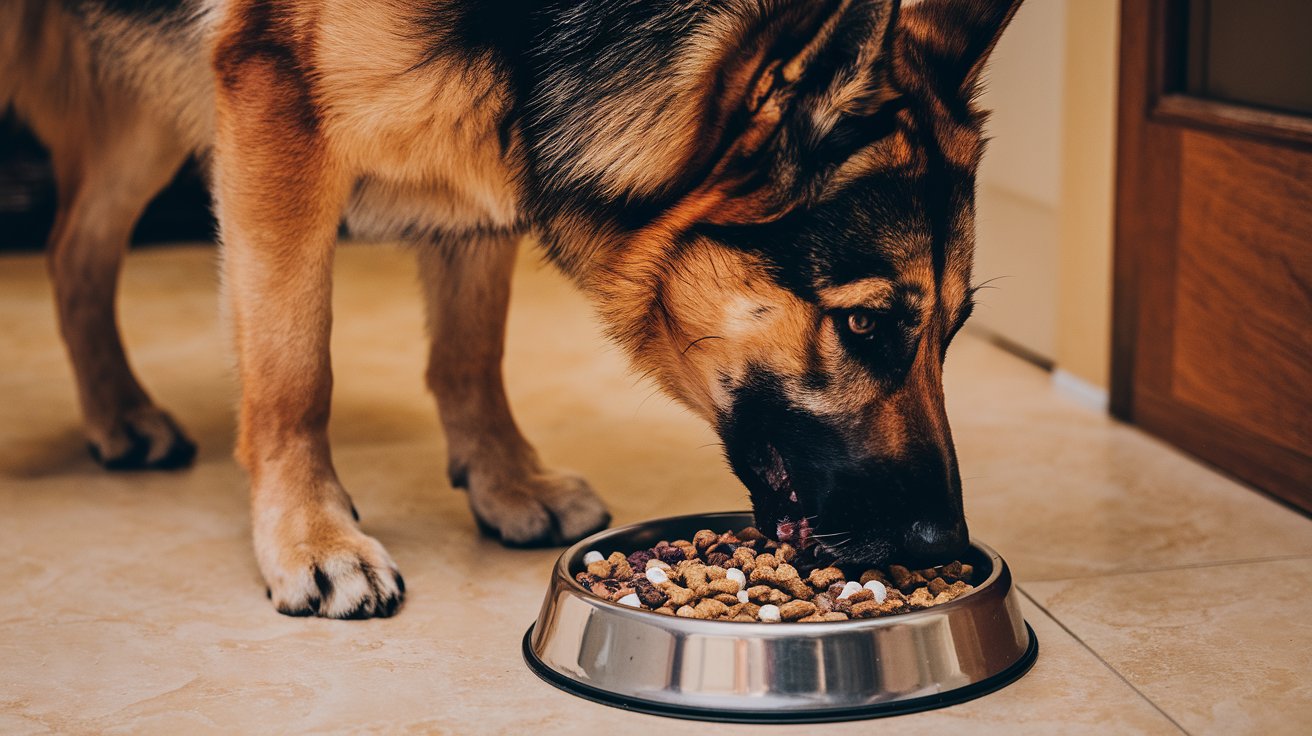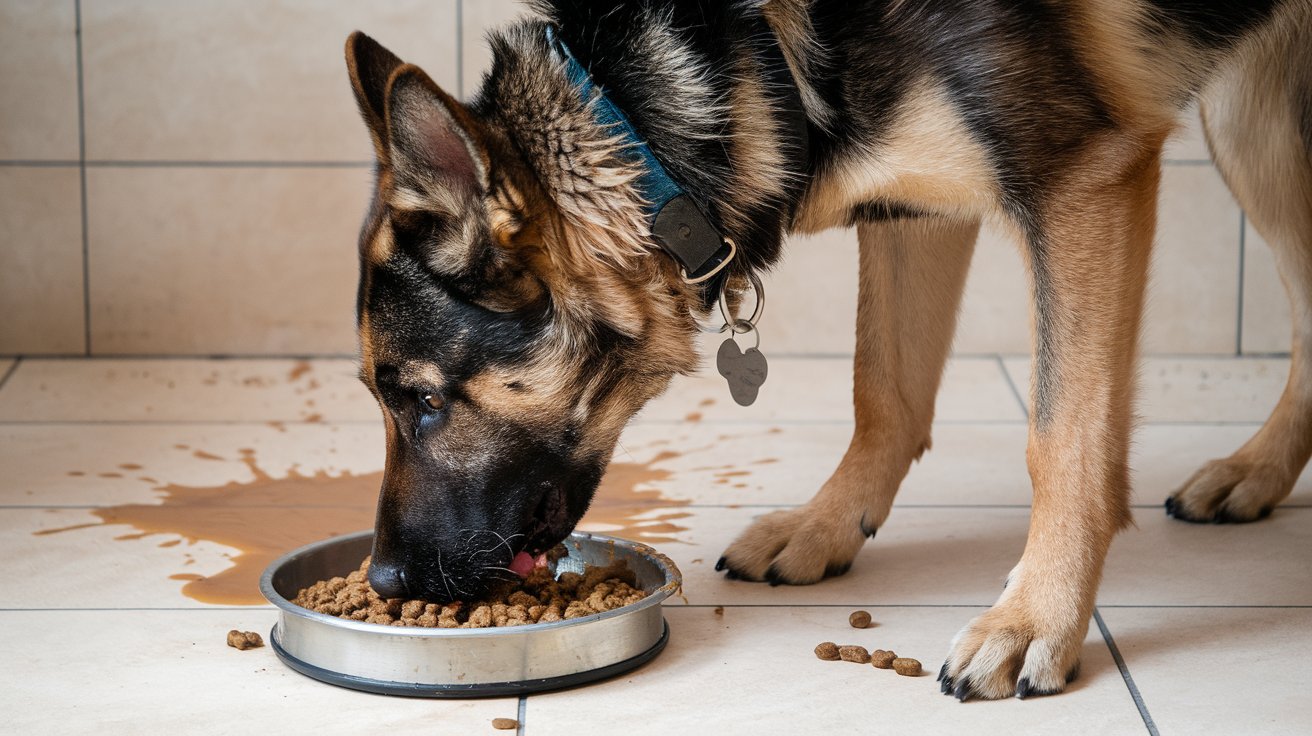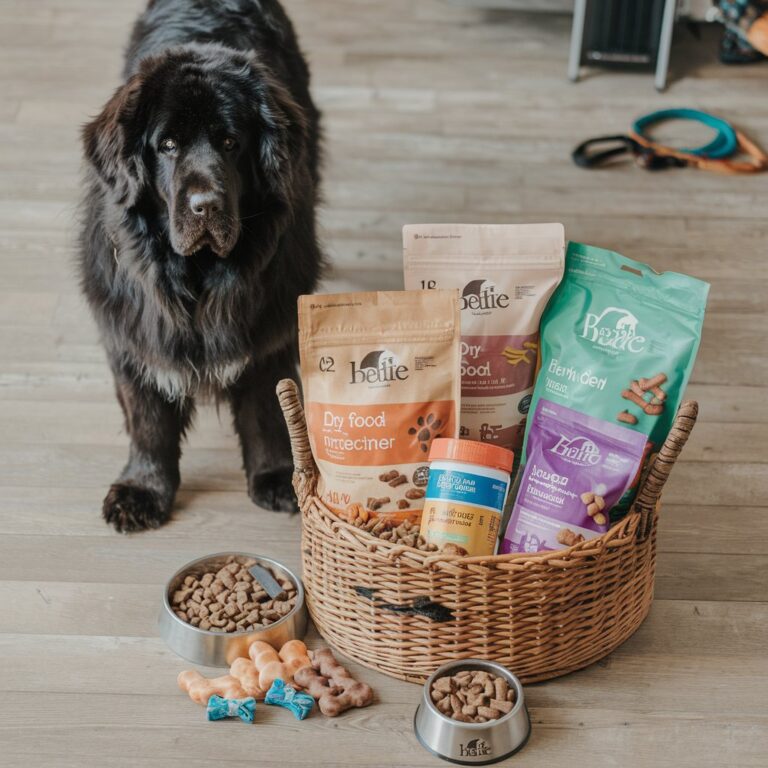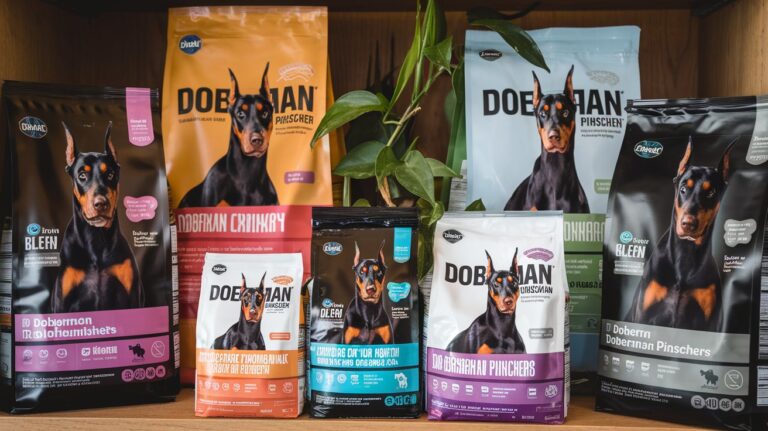Ultimate Diet Plan for German Shepherds: 100% Comprehensive Guide
German Shepherds are a beloved breed, renowned for their loyalty, intelligence, and physical prowess. Whether serving as working dogs or family companions, their dietary needs are crucial to maintaining their health, energy, and longevity. A well-balanced, nutritious diet helps your German Shepherd stay strong, maintain a healthy weight, and avoid common health issues such as hip dysplasia, joint problems, or digestive concerns. This ultimate diet plan will guide you through the essentials of feeding your German Shepherd, ensuring they receive all the nutrients they need to thrive.
Why Diet Matters for German Shepherds

German Shepherds are a large, active breed, and their dietary needs reflect this. A poor diet can lead to obesity, malnutrition, or even behavior problems. When I first got my German Shepherd, Max, I didn’t realize how much thought needed to go into his diet. I initially fed him generic kibble, but after a few months, he started to gain weight and became lethargic. That’s when I decided to research more about his dietary requirements, and the change was incredible. He became more energetic, his coat shinier, and he maintained a healthy weight.
German Shepherds require a diet rich in proteins, fats, and essential nutrients to support their muscular bodies and active lifestyles. Whether you’re feeding them commercial dog food, a homemade diet, or a raw food diet, understanding the key nutritional elements is essential.
Essential Nutritional Components for German Shepherds
- Proteins
- German Shepherds are active dogs, and their diet should include high-quality protein. Protein supports muscle development, tissue repair, and immune function.
- Look for foods that contain lean meats like chicken, turkey, beef, and lamb. Fish such as salmon can also provide essential omega-3 fatty acids, which are beneficial for their coat and joint health.
- My own experience with Max showed how important the right protein source is. After switching to a high-protein diet (with chicken and lamb as primary ingredients), his muscle tone improved noticeably.
- Fats
- Healthy fats are a vital energy source for German Shepherds, especially those that are highly active. Fats also aid in the absorption of vitamins and promote a shiny coat and healthy skin.
- Omega-3 and Omega-6 fatty acids, found in fish oil and flaxseed, are particularly beneficial for reducing inflammation and promoting joint health.
- Carbohydrates
- While protein is essential, carbohydrates provide the energy German Shepherds need for their daily activities. Opt for complex carbohydrates like sweet potatoes, brown rice, and oatmeal rather than simple carbs found in some cheap dog foods.
- Fiber-rich carbs also promote digestive health, a concern for many German Shepherds, as they are prone to digestive issues.
- Vitamins and Minerals
- A well-balanced diet should include vitamins and minerals like calcium, phosphorus, zinc, and vitamin D, which are essential for bone development, immune support, and overall health.
- Some German Shepherds, particularly those prone to hip dysplasia or joint issues, may benefit from supplements such as glucosamine and chondroitin.
Choosing the Right Food for Your German Shepherd
1. Dry Kibble (Commercial Dog Food)
Dry kibble is one of the most convenient options for dog owners. It’s readily available and often contains the necessary balance of protein, fats, and carbs. However, not all kibbles are created equal. When choosing a kibble for your German Shepherd, consider the following:
- High Protein Content: Ensure the first ingredient is a high-quality protein source like chicken, beef, or lamb. Avoid dog foods that list fillers like corn or soy as primary ingredients.
- Joint Support: Opt for kibble that contains added glucosamine and chondroitin for joint health.
- Avoid By-Products: Look for brands that avoid using animal by-products, as these are often lower in quality and nutrition.
Personal Anecdote: After trying a few different kibble brands, I found that Max thrived on a grain-free, high-protein formula. I noticed a significant improvement in his energy levels and coat after a few weeks of transitioning to this food.
2. Wet Food
Wet food can be a great addition to your German Shepherd’s diet, especially if they are picky eaters or need extra hydration. It typically contains more protein and fewer carbohydrates than kibble, but it’s more expensive and doesn’t provide the same dental benefits as dry kibble.
Consider using wet food as a supplement or mix it with dry kibble to add variety and flavor to their meals. Just make sure the wet food also contains high-quality ingredients and isn’t loaded with fillers.
3. Raw Diet (BARF – Biologically Appropriate Raw Food)
The raw food diet has become increasingly popular, with proponents arguing that it’s closer to a dog’s ancestral diet. This diet typically includes raw meat, bones, fruits, and vegetables. While it offers benefits like shinier coats, healthier teeth, and more energy, it also requires careful planning to ensure your dog gets all the nutrients they need.
Advantages:
- High in protein and nutrients.
- Often results in improved digestion and smaller stools.
Disadvantages:
- Requires careful handling to avoid contamination (e.g., salmonella).
- Can be expensive and time-consuming to prepare.
Personal Experience: I briefly tried the raw diet with Max. While he seemed to enjoy it, the preparation and cost became overwhelming, and I ultimately switched back to high-quality kibble with occasional raw treats.

Feeding Schedule and Portion Control
Portion control is essential for preventing obesity, which can lead to joint problems and other health issues, especially in larger breeds like German Shepherds. Most German Shepherds do well with two meals per day, but puppies may require three to four smaller meals throughout the day.
Puppies (Up to 12 months)
- Feed high-quality puppy food designed for large breeds to support their growth.
- Provide three to four meals a day until they reach about six months old, then transition to two meals.
Adults (1 to 7 years)
- Feed twice a day to avoid overeating and promote good digestion.
- Ensure portion sizes are appropriate for their weight and activity level. Active dogs may need more food to fuel their energy.
Seniors (7+ years)
- Adjust feeding portions based on their activity level and metabolism.
- Consider switching to senior dog food that’s lower in calories but rich in joint-supporting nutrients.
Homemade Dog Food for German Shepherds
If you prefer to take control over every ingredient in your dog’s diet, making homemade dog food can be a great option. Homemade meals allow you to cater specifically to your dog’s needs, whether they have allergies, digestive issues, or other health concerns.
A basic homemade recipe for a German Shepherd might include:
- Protein: 1 pound of cooked chicken or beef
- Carbohydrates: 2 cups of cooked brown rice or sweet potatoes
- Vegetables: 1 cup of steamed carrots, green beans, or spinach
- Healthy Fats: 1 tablespoon of olive oil or fish oil
- Supplements: A multivitamin formulated for dogs, plus glucosamine and chondroitin for joint support.
Personal Note: I occasionally cook homemade meals for Max when I have extra time, and he absolutely loves it. His favorite is a simple mix of chicken, sweet potatoes, and spinach, and it’s a nice treat to mix things up from his regular kibble.

Conclusion: Tailoring the Ultimate Diet for Your German Shepherd
Every German Shepherd is unique, and what works for one may not work for another. Factors such as age, activity level, health conditions, and personal preferences all play a role in determining the best diet. By providing a balanced diet rich in high-quality proteins, healthy fats, and essential nutrients, you can ensure your German Shepherd remains healthy, active, and happy for years to come.
The key takeaway is to listen to your dog’s needs and make adjustments as necessary. Whether you opt for dry kibble, wet food, a raw diet, or homemade meals, always consult your vet before making any major changes to ensure your dog’s health and well-being. After seeing how Max thrived once I switched to a more thoughtful, balanced diet, I can’t stress enough how important it is to get your German Shepherd’s nutrition right.



Клиника наркологии в Самаре: помощь при зависимости и реабилитация
анонимная наркологическая клиника http://www.narcologicheskaya-clinika-samara-2.ru/ .
Thanks for visiting here if you want to learn more about Rare Dog Breeds then you are at the right place and if you have any question about any dog breeds so you can find many dog breeds here and all information
Займ без отказа с плохой кредитной историей: деньги без лишних вопросов
все займы на карту без отказа https://www.dengikz.online .
Thanks for visiting here you can get more information about dog breeds here